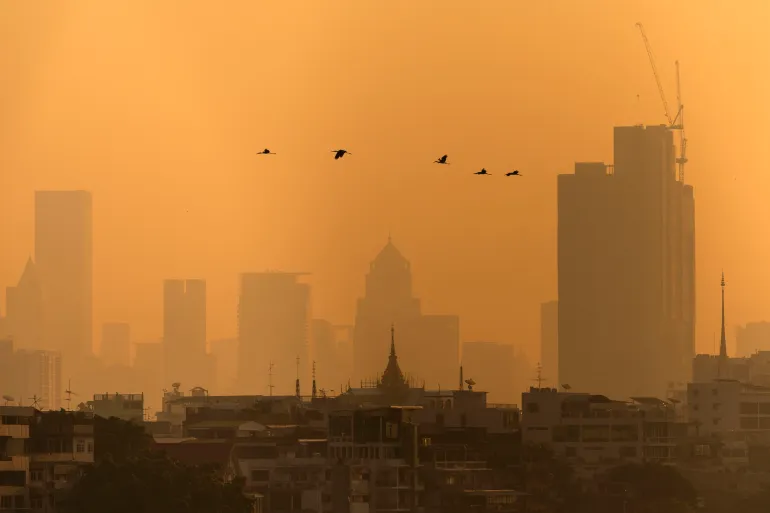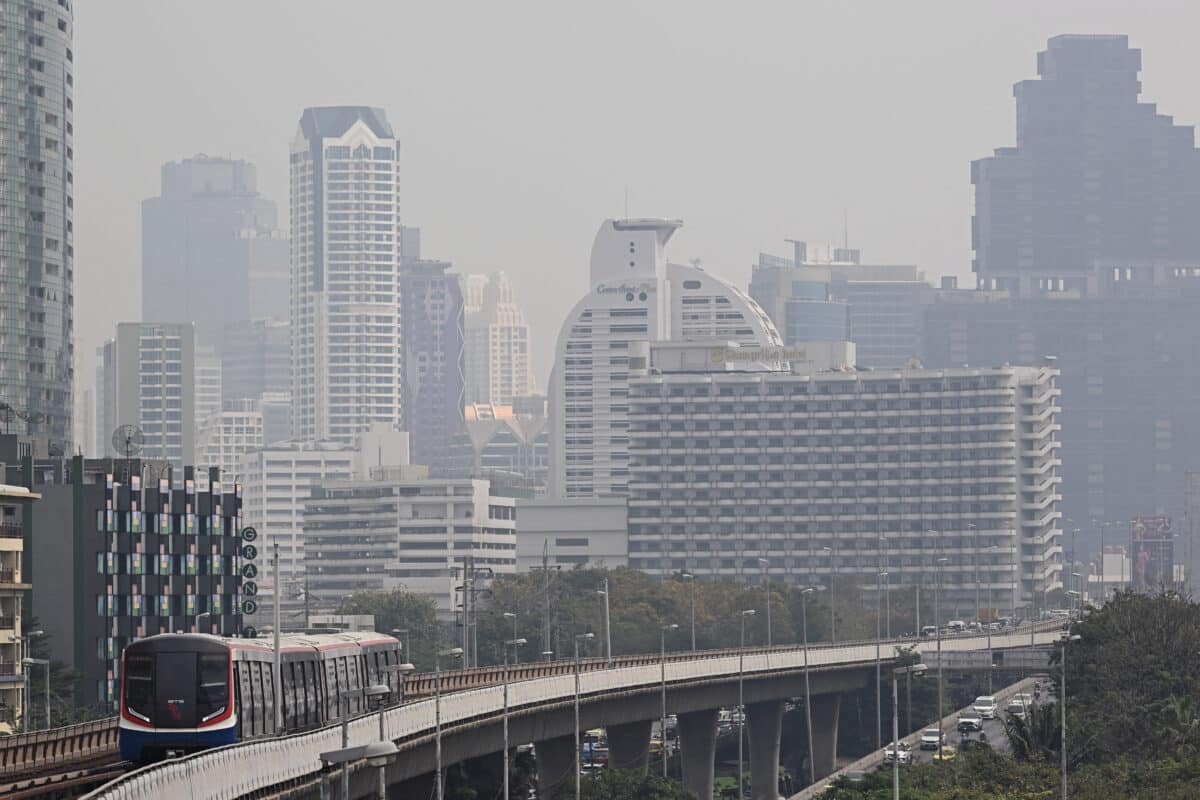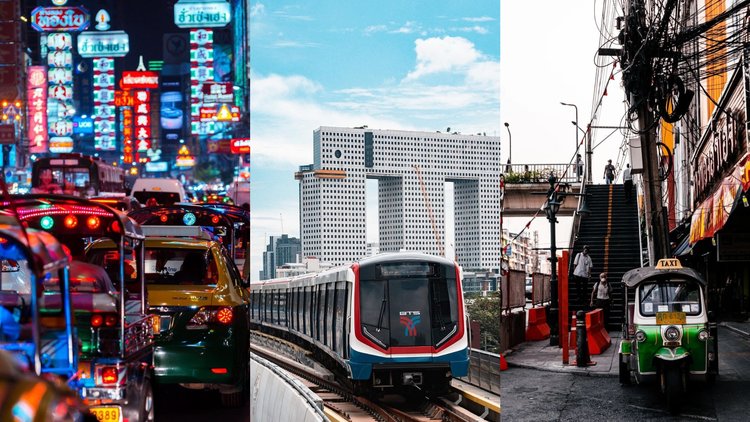Bangkok’s Disturbing Ranking in Air Quality
Bangkok has been officially ranked as the fourth most polluted city globally, according to the latest data released by Swiss-based IQAir. This alarming status was reported on January 24, 2025, amid ongoing concerns regarding toxic haze affecting the capital and surrounding provinces. The air quality index (AQI) in Bangkok reached a concerning level of 188, indicating hazardous conditions for residents.
Health Risks Associated with Poor Air Quality
The Bangkok Metropolitan Administration (BMA) has declared 48 out of 50 districts as red zones, which are categorized as hazardous to health. The average level of particulate matter (PM2.5), which refers to particles smaller than 2.5 micrometers, was recorded at 88.4 micrograms per cubic meter (µg/m³)—significantly above the government-set safe threshold of 37.5 µg/m³. Nong Khaem district emerged as the most affected area, with PM2.5 levels soaring to 108 µg/m³. Other districts such as Khan Na Yao and Min Buri also reported dangerously high levels of air pollution.
Government Response and Public Health Advisory
In light of the deteriorating air quality, City Hall has urged residents to work from home whenever possible and to limit outdoor activities to mitigate health risks. The BMA has also advised individuals experiencing symptoms like coughing or eye irritation to seek medical attention promptly.
Regional Context: Southeast Asia’s Pollution Challenges
In Southeast Asia, Bangkok is only surpassed by Ho Chi Minh City in terms of pollution levels. Other cities in the region that rank among the top ten most polluted include Phnom Penh and Hanoi, which are ranked fifth and seventh respectively. This regional crisis highlights a broader environmental challenge that many urban areas face due to factors such as traffic emissions, industrial activities, and seasonal agricultural burning.
Urgent Action Needed
As Bangkok grapples with its air quality crisis, immediate action is essential to protect public health and improve environmental conditions. The ongoing situation serves as a stark reminder of the urgent need for effective pollution control measures and public awareness initiatives to combat air quality issues in urban settings.









